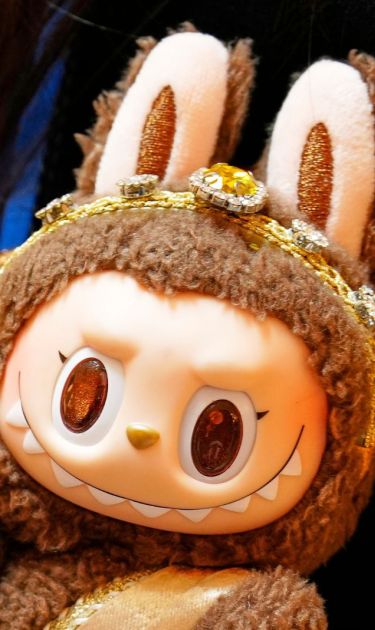There’s a new toy-turned-trend taking over all our timelines — Labubus.
It doesn’t matter where you look, they’re everywhere. Its popularity took a meteoric rise after K-POP singer Lisa from Blackpink gave it her stamp of approval. But in case you’ve never heard of it: A Labubu is a Pop Mart plush toy that resembles a cross between a gremlin from Joe Dante’s Gremlins and a Furby — those furry owl-meets-hamster toys that were all the rage in the 2010s.
But here’s the fun twist: It’s no longer confined to children’s playtime or collectors’ shelves. Pop Mart little monsters have clawed their way into the fashion world, becoming the latest must-have accessory, hanging on handbags all over the world.
Naturally, low-cost counterfeit versions have already begun to pop up across the globe, with netizens referring to them as ‘‘Lafufus,’’ while making jokes about the subtle discrepancies from the original. But in Brazil, where Pop Mart still isn’t selling directly to the country, Brazilians have come up with a third new thing: Tribufus. As a Brazilian slang mainly used in Minas Gerais and Bahia, the word ‘‘tribufu’’ generally stands for something messy, poorly dressed, or even ugly.

The Tribufu became popular after street vendors on Avenida da Liberdade and 25 de Março, a popular shopping street in downtown São Paulo, started selling affordable, but clearly counterfeit, versions. While the sellers haven’t called these plush toys Tribufus, customers and netizens have given them this name because of their disappointing and peculiar appearance — think a giant, awkwardly disproportionate, and slightly ugly teddy bear that tries to channel the hyped Chinese collectible.
According to the Brazilian newspaper Folha de S. Paulo, some people have reported paying over R$60 (about $11 USD) and feeling that they have been scammed, while others spent R$120 (about $22 USD) on replicas that featured disproportionately large heads and bodies.
However, Tribufus are not only trending because of their odd looks and the sometimes humorous reactions it generated among Brazilians online. While owners of real Labubus or even Lafufus can flaunt their plush toys as edgy accessories on their bags, the disproportionate and immense nature of Tribufus makes them utterly impractical and probably impossible for styling and accessorizing backpacks or purses. In this sense, Tribufus are as if even uglier Labubus were mere teddy bears, losing its somewhat quirky fashion appeal completely.

Although Pop Mart does not currently operate in Latin America, as they are prioritizing expansion in Asia, North America, Europe, and Oceania, Latin American collectors still have options. Many rely on global e-commerce platforms, such as AliExpress, Shopee, Mercado Libre, and Falabella, for importing these goods, though they still risk receiving replicas — especially when looking for the lowest price.
Thus far, the Tribufu craze has only been circulating on social networks as well as local newspapers, with no official sales of alternative versions of Labubu under this third name. And in Brazil, piracy — the unauthorized copying, distribution, or use of copyrighted material without permission from the copyright holder — is illegal. Nevertheless, the replica remains highly visible in many stores while also generating significant buzz online.
Consequently, one can’t help but wonder what will happen to those vendors and if and when Pop Mart will finally open its doors to the Latin American market.
